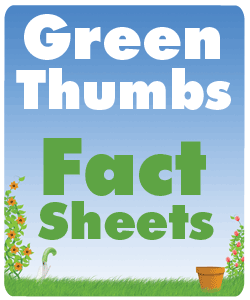
Mini-grants
Green Thumbs, Healthy Joints is a program that works to increase West Virginians’ awareness of joint health through accessible gardening. It is a program funded by the WV Bureau for Public Health, Division of Health Promotion and Chronic Disease.
The program has accepted applications for innovative gardening plans including raised garden beds or other accessibility modifications for gardens. Proposed projects can take place at senior centers, parks or other community sites.
Green Thumbs, Healthy Joints funds mini grants for accessible garden projects as a means to increase awareness and educate West Virginians about joint health, ergonomics and alternative gardening methods. Technical assistance for creating and modifying gardens to be accessible is provided as is funding for construction materials and gardening supplies. The intention of funding is to bring accessible gardens to public places and use as an activity that engages the general public or those your organization serves. Previously funded grants range from service projects to introducing accessible gardens to physical rehabilitation facilities and community centers. They have taken place at senior centers, parks and other community sites available to individuals with arthritis, osteoporosis and other joint limitations.
Green Thumbs, Healthy Joints will provide selected nonprofit applicants with financial support up to $1,000 to help cover material and supply costs for constructing accessible gardens or to modify existing ones. A portion of funding is to be used toward the purchase of ergonomic gardening tools ($150-$275).
Summaries for the 2017 GTHJs Project Awardees
- Brooke County Museum (Brooke County) plans to develop raised garden beds and add seating for participants in their community gardening program. They hope to engage students from a primary school and a middle school across the street from their gardening project in Wellsburg, WV.
- Cabin Creek Health Center, Inc. (Kanawha County) plans to add raised vegetable beds to the community garden. They hope to encourage intergenerational activity and enjoyment by placing the raised beds near their children’s playground. They plan to offer a springtime gardening workshop for their community.
- Community Resources, Inc. (Wood County) plans to develop raised beds and create an accessible concrete sidewalk leading to their garden at Westbrook. They also plan to buy new assistive gardening tools for their clients in Parkersburg, WV to help them overcome barriers and enjoy accessible gardening.
- Fayette Hills Unity Apartments, Inc. (Fayette County) plans to build two raised vegetable beds and a garden bench at Fayette Hills Unity Apartments. They also plan to add a wheelchair access ramp and bench between the garden beds. They want to help the residents with overall health and individual health problems — through summer activity, community involvement and healthy foods.
- Friends of Deckers Creek (Monongalia County) plans to develop vertical gardens at the Outdoor Learning Park by the Deckers Creek Rail Trail. They hope to plant herbs and small vegetables so participants can take produce home. They also plan to add benches near the garden beds along the rail trail in Sabraton, WV.
- Gateway Industries, Inc. (Greenbrier County) plans to construct a raised flowerbed near their client gazebo and walking trail. Their center and the town of Ronceverte, WV both endured major damage during the flood of 2016. They want to beautify their community with flowers.
- Hardy County Health and Wellness Center (Hardy County) plans to develop raised beds and collaborate with a local greenhouse. They plan to offer a variety of horticulture programs to teach senior participants about gardening techniques at their center in Moorefield, WV.
- Homestead Farm Center, Inc. (Taylor County) plans to construct raised garden beds at their center to create a community garden for Taylor and Marion counties. They also plan to add garden bench seating to make it easier for individuals to work and relax at their garden site in Grafton, WV.
- Jefferson County Council on Aging (Jefferson County) plans to create a hay bale garden on a lot across from the senior center. They hope to work with a local scout troop on developing the garden. They want to plant herbs and vegetables so seniors have access to fresh local produce. They plan to put a rest bench at each end of the garden and use a rain barrel to help with watering.
- Kanawha Valley Senior Services, Inc. (Kanawha County) plans to build raised vegetable and flower beds at their senior nutrition site in Charleston, WV. They plan to partner with the Retired Senior Volunteer Program (RSVP) and share their harvest with participants who may not otherwise have access to fresh vegetables.
- Lewis County Senior Center (Lewis County) plans to build accessible garden beds at their center. They want to buy a portable gardening stool, kneeling pad and ergonomic tools to make it easier for their participants to garden. They hope to grow fresh produce for a local food bank and for their participants in Jane Lew, WV.
- Mineral County Family Resource Network (Mineral County) plans to build raised vegetable beds and start an intergenerational community garden program. They hope to bring a shared gardening experience to children from a nonprofit childcare center, participants in a foster grandparents program, people with disabilities and local seniors in Keyser, WV.
- Putnam County Aging Program, Inc. (Putnam, WV) plans to establish perennial gardens to beautify their center. They hope to include vertical gardening on the side of the building, in tomato cages and on nearby fences. They plan to partner with Masters Gardeners from the WVU Putnam County Extension office and students from the Buffalo High School Agricultural Department.

